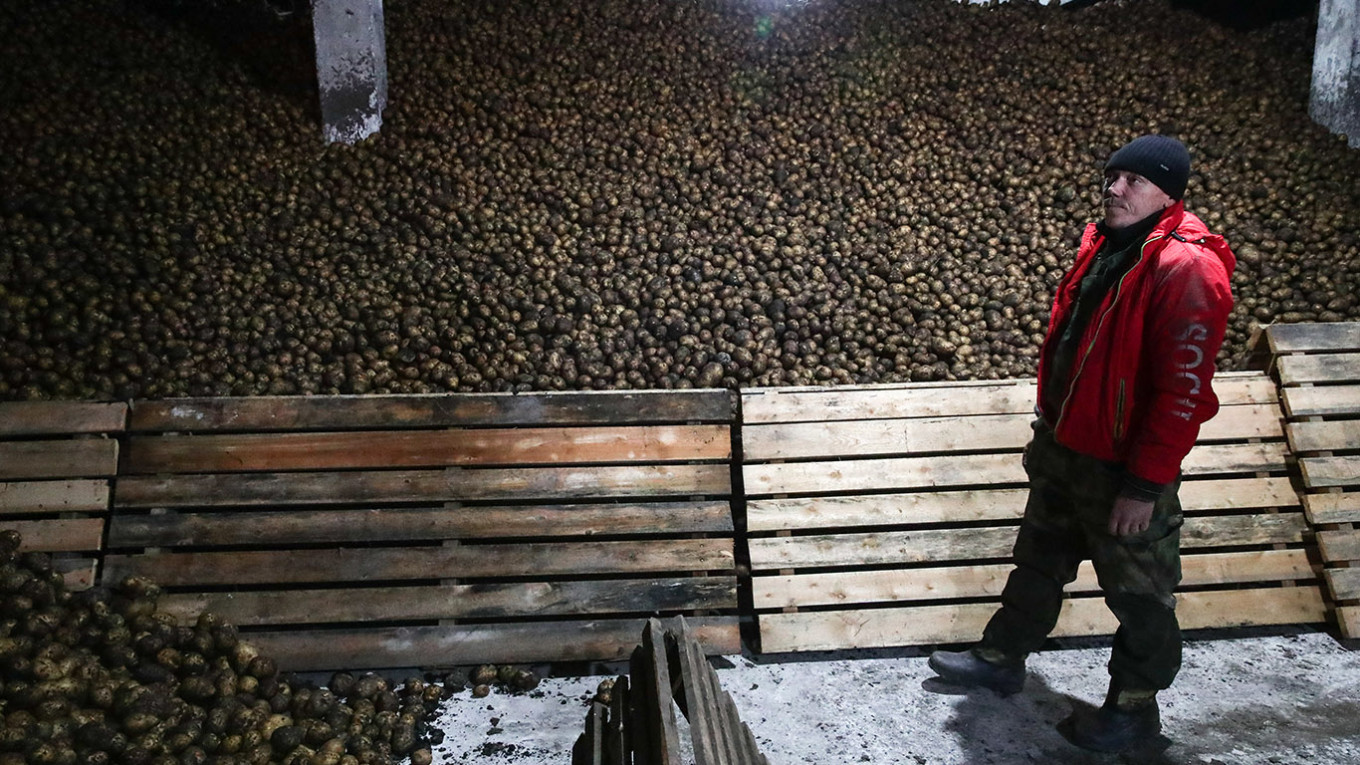Wholesale potato prices in Russia have soared to unprecedented levels this spring, following a significant drop in the previous year’s harvest, according to a report from the Kommersant business newspaper citing industry experts.
By late April, potatoes harvested in 2024 were selling at an average of 46.3 rubles ($0.57) per kilogram in the wholesale market, marking an 85.2% increase since January and establishing a new record price. Retail prices have nearly tripled compared to last year, reaching 85.4 rubles ($1.06) per kilogram.
Official data indicates that last year’s potato harvest declined by almost 12%, totaling 17.8 million metric tons, largely due to adverse weather and seed shortages. Additionally, producers had scaled back planting areas after a record yield in 2023.
Experts attribute the price increase to low stock levels, limited storage capacity, rising energy expenses, and robust demand.
Typically, major Russian retailers depend on imports to satisfy spring demand, obtaining as much as 40% of their potatoes from countries such as Egypt, Pakistan, and China during the off-season.
Kommersant noted that the market instability is likely to continue until the next harvest begins in late June or early July.
To alleviate shortages, Russia’s Agriculture Ministry has approved the import of up to 150,000 metric tons of potatoes without tariffs until July 31 and mentioned the possibility of increasing the quota if necessary.

